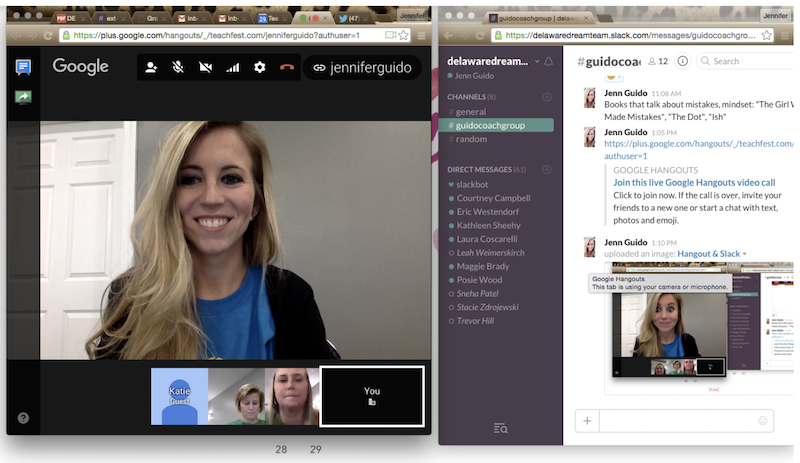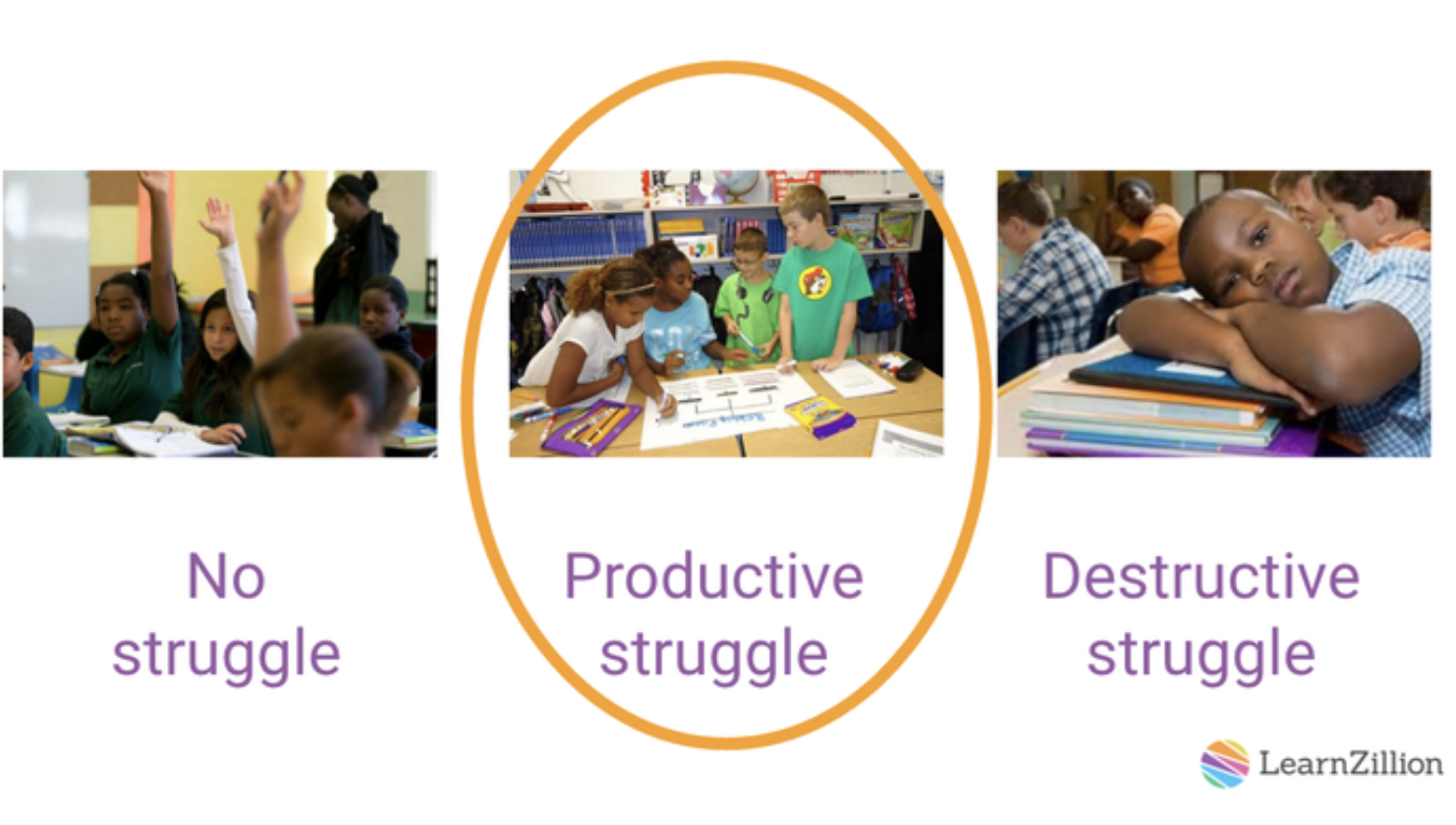Setting the Stage for Productive Struggle in Your Classroom
- May 3, 2016
- By Jennifer Guido

Reflect back to the last time you learned something new. How did you feel? Did you “get it” the first time, or did it take multiple attempts, perseverance, and failure to reach your goal? Once you reached your goal, how did it feel?
Now, think about your classroom. How much of your instructional time is spent with you in control of the lesson? Are your students wrestling with challenging concepts and making sense of complex ideas? Are you providing your students with multiple attempts at learning, perseverance, and opportunities to fail? (Yes, fail!)
As educators, we want our students to feel successful. Sometimes, this means that we take control of the lesson and do what we can to make content easy for our students to comprehend. Despite these good intentions, research from the National Council of Teaching Mathematics has shown that providing students with opportunities to productively struggle helps them to “delve more deeply into understanding.”
Productive struggle is gaining traction in math instruction to great effect, and can be used while teaching any subject to increase student confidence, boost conceptual understanding, and give students a sense of accomplishment in their work. Conceptual understanding lessons are those that are rich with opportunities for students to activate prior knowledge and then connect it to the new concept. Students use the knowledge they have to grapple with a task or idea that helps them generate new knowledge; combined with appropriate and purposeful feedback from the teacher students feel motivated and develop confidence to continue to grow and learn.
I recently had the opportunity to participate in a three-month professional development training for teachers, hosted by the State of Delaware and LearnZillion. The goal of the training was for teachers to build confidence in teaching conceptual understanding lessons, with an emphasis on using productive struggle to achieve learning goals.

As a “Dream Team” coach, my role was to use LearnZillion’s math curriculum to provide a blended professional learning experience for my teachers, starting at TeachFest. TeachFest was a two-day training session where teachers had the opportunity to explore LearnZillion’s conceptual understanding lessons and develop confidence in planning lessons surrounding tasks that will require students to persevere. The training started out by sharing new brain research with teachers and showing them the power of providing opportunities for students to feel challenged in the classroom. Teachers worked through various lessons as students would, to anticipate student responses. Teachers then worked through the same lessons as a teacher to identify how they would correct student misconceptions.
Everyone gained confidence about integrating productive struggle in their classroom lessons, and what response to anticipate from students. Productive struggle may be uncomfortable for students, but it is important to establish this as a norm in the classroom. Emphasis should be on learning from mistakes and realizing there are often multiple pathways to a solution. Developing a classroom community where students feel safe to fail will support students through productive struggle.

It’s also important for teachers to learn how to correct a lesson if a student is experiencing destructive, or unproductive struggle. This can happen if students do not feel comfortable to make mistakes or to fail, if the goal of the lesson is unclear, or if they are not receiving appropriate support from their teacher or peers through the process. Destructive struggle can be avoided by providing students with thoughtful feedback about their responses. Specific feedback allows students to gain understanding of the material without losing the confidence to continue to engage.
After the two-day TeachFest professional development, teachers returned to their school with a conceptual understanding lesson ready to teach. Teachers collected student data and then we used Google Hangouts to reflect on the experience. During the Hangout, many teachers reflected on how challenging it was to let their students struggle! They felt as though they needed to “come to the rescue” and guide their students through the task. Allowing students to productively struggle proved to be a productive struggle for the teachers, too!
We continued through this collaborative, reflective cycle through in-person evening events and remote meetings. Many teachers began to implement lessons that allowed students to persevere through a difficult task more frequently. As a result both student resilience and teacher confidence skyrocketed.
As teachers went through this process, many felt rejuvenated and excited about their teaching practice. Student engagement increased as students became independent problem solvers and comfortable with making mistakes. Teachers then scaled their impact through leading two of their own professional learning experience with Professional Learning Communities in their school.
Takeaways
- Implement a culture that fosters productive struggle in your classroom: Students will be more comfortable making mistakes and learning from them when it’s supported by their the teacher and peers.
- Provide opportunities for students to struggle: Implement meaningful assignments with deep connections that allow students to reflect on prior knowledge and draw on multiple approaches to solve problems.
- Professional Learning Communities are a valuable resource: Be a champion for other teachers you work with! Share strategies and ideas. Together we are better.
Resources
For more information about conceptual understanding and productive struggle please access the following resources.
- LearnZillion Resources: Resources for Embracing Productive Struggle
- National Council of Teaching Mathematics: Principles to Actions: Ensuring Mathematical Success for All, Let Your Students Fail
- Productive Struggle and Formative Assessment: Math Minds


